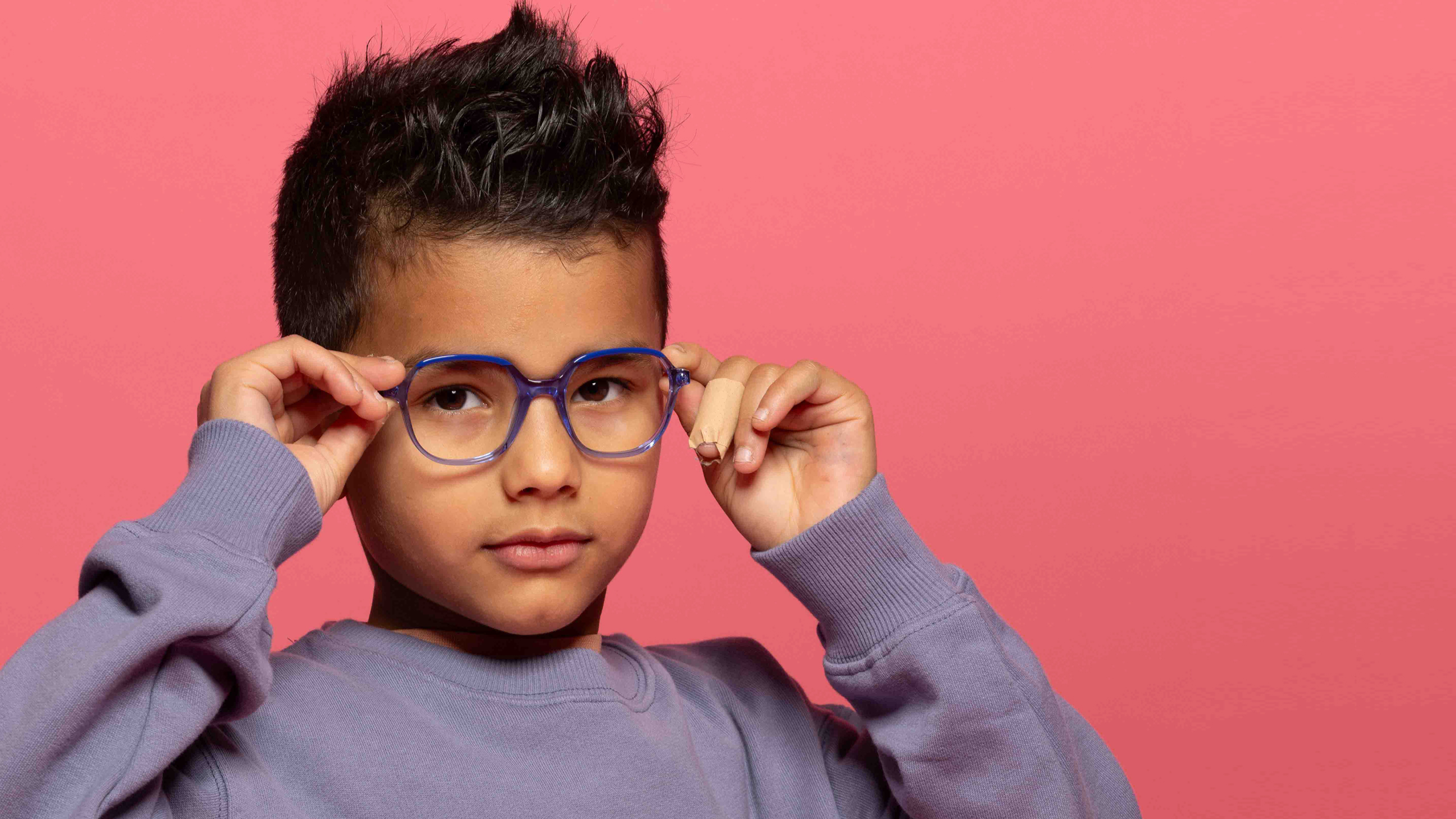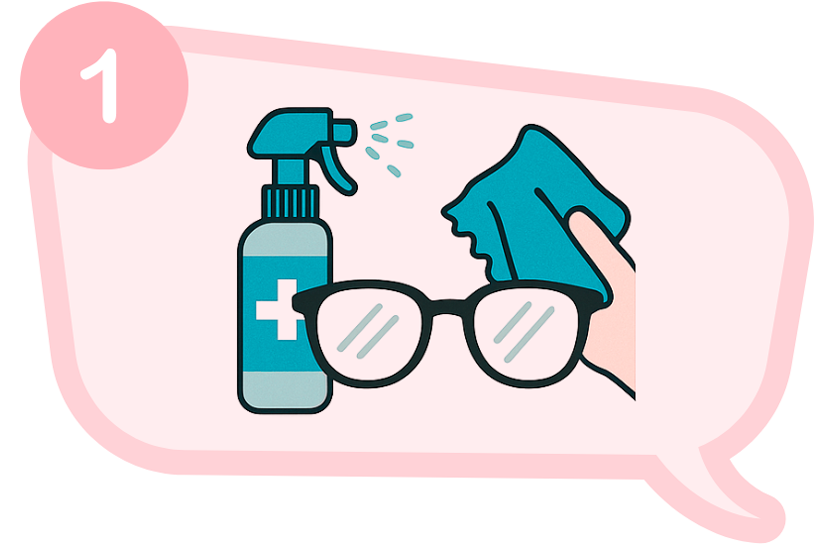👓 Kids and Glasses: NO, They don’t always break them (if we teach them right)!

⏱️ 03:00 Reading Time
There’s a phrase we often hear when it comes to kids wearing glasses:
“They’ll just break them right away.”
But is that really true?
Spoiler: not really. Or rather — yes, it can happen. But in the vast majority of cases, children are not “naturally destructive.” What’s often missing is simply a bit of education on how to take care of things. And yes, choosing the right, high-quality frame also makes a big difference: it should be comfortable, durable, and designed to keep up with a child’s daily life.
The good news? Learning how to take care of glasses can be taught naturally, easily, and in an engaging way — just like all the other small daily routines: brushing teeth, packing a backpack, tying shoelaces.
Just like they learn to care for their bodies, kids can also learn to care for their glasses.
Let’s see how.

🧼Daily cleaning: a simple but essential habit
Glasses get dirty. Always. At school, in the park, while playing or drawing. Totally normal.
But cleaning them properly makes a difference — both for vision quality and for the lifespan of the frame.
Teach (and repeat) these key points:
- No t-shirts, tissues or paper towels: they can scratch the lenses.
- Use lukewarm water and a gentle soap (no degreasers or alcohol-based products).
- Pat dry with a clean microfiber cloth that’s always on hand.
- When on the go, a lens cleaning spray is great to keep in the backpack.
👉 It can become an evening routine, like brushing teeth: a quick clean before bed and they’re ready for the next day.

🎒 The case: your best ally against bumps and scratches
A pair of glasses left lying around is a pair of glasses at risk.
Desks, backpacks, hoodie pockets — they’re all “enemies” of frames and lenses.
The golden rule is simple:
If you’re not wearing them, put them in the case.
- A hard case is best — it protects against drops and pressure.
- Choose a case your child likes: colorful, with a fun design or their name. It helps them feel attached to it.
- Teach them the case goes everywhere with the glasses. Always.
👉 It’s a small responsibility that kids can manage on their own — and it makes them feel more grown-up.

🔧 Bent temples or loose screws? Your optician is your best friend
Even the best glasses can take a hit, fall, or get squashed and lose their shape. It happens.
Over time, they might also gradually lose their original shape just from being taken on and off multiple times a day.
But trying to fix them at home is never a good idea — and definitely not with tape.
It’s important to remember:
A poorly adjusted frame can change how the lenses sit, affecting the visual correction.
What to do:
- Take them to the optician for a professional adjustment.
- A check-up now and then can prevent discomfort, pressure behind the ears, or glasses that slide down or sit unevenly.
👉 This goes for older kids too — even if they don’t say anything, they may be silently dealing with discomfort all day long.

🛑 Bad habits to break
Some instinctive gestures — ones we all do — are the worst enemies of glasses:
- Laying them down with the lenses facing downward
- Wearing them like a headband
- Bending the temples beyond their natural range (just visit your optician — they’ll fix it in seconds)
- Leaving them exposed to sunlight or high heat (like inside a car in summer)
👉 Explaining why these habits are harmful helps kids understand and make better choices.
It’s not about rules and restrictions — it’s about showing the value of something they use every day.
🧠Taking care = Learning to care
In the end, this isn’t just about lenses and frames.
It’s about education.
Taking care of glasses teaches kids something much bigger: the value of things, attention to detail, and respect for what helps them live better. And they learn it in a practical, visible way. Every scratch avoided is a little lesson learned.
Every good habit is one more step toward independence.
💬 In short
Glasses aren’t made to be broken.
They’re made to be used, enjoyed, and worn with pride.
And kids — if guided the right way — can take care of them even better than adults.
Because learning to care for glasses is also a way to learn to care for themselves.
